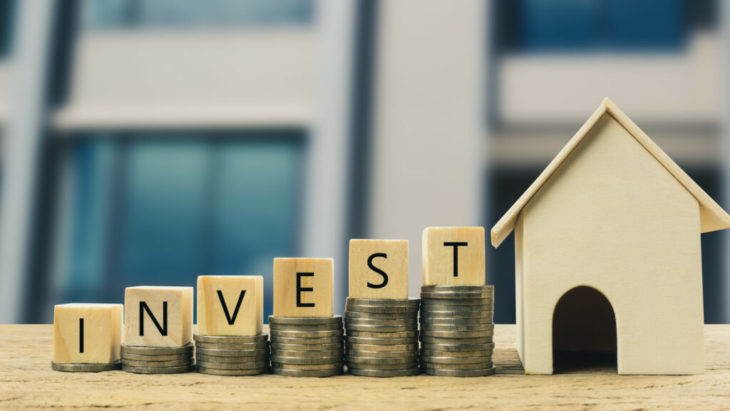There it is again. That once-a-month unsettling feeling. It’s not your ovulation cycle. It’s your monthly financial cycle making you nauseous. It’s that nagging feeling that accompanies the deadline for your rent check. Who’s getting rich off your rent? Are you wasting money when you should be building equity? And what the heck IS equity, anyway?
However noble and responsible those questions are, if you’re anything like I was before I got hitched and bought a house, you quickly file them away in the “I’ll think about that next month” drawer. Besides, the pizza deliveryman is on the way, and “Sex and the City” re-runs are on demand. Renter’s paradise, right?
But if you’re lingering over the neighborhood home guide, you might as well educate yourself on how to save for your first home. We interviewed consultant and women’s financial expert Deana Arnett for tips on when you’re ready for your own home and how in the heck to get the process started. (First, turn off Carrie Bradshaw. She’s a bad influence. Her shoes and handbags alone would cover half a dozen mortgage payments.)
Contents
Why Is Owning Better Than Renting, Anyway?

Source: medium
According to Arnett, you want your hard-earned paycheck to boost your own financial portfolio, rather than someone else’s. “The biggest advantage to owning is simply using your dollars to build equity for yourself instead of a landlord,” says Arnett.
There’s the e-word. Home equity is the difference between your home’s fair market value and the outstanding balance of all lien to debts you owe on it. Translation #1: Your home equity goes up as your mortgage balance goes down.
Arnett says not to overlook the tax incentives, too. “There’s a potential mortgage interest deduction for those filers who can itemize on their federal returns,” she says. Translation #2: Uncle Sam will lower your tax bill by the total amount you paid in interest on your mortgage payments.
Am I Ready for Home Ownership?

Source: Homee On Demand
Are you a 20- or -30-something renter? Still renting in your 40s? The truth is, it doesn’t matter. Arnett says readiness for home ownership is not determined by age. It’s the maturity of your finances that counts. “If you find that you consistently spend less than you bring home and the money is piling up, it’s a good sign,” Arnett says.
Sorry, Sister, No House for You

Source: GettyImages
There are several circumstances under which you may NOT be ready for your first home. Here are Arnett’s top three reasons renting might be best for you:
- You have no safety net. Um, huge red flag. Safety net = money in the bank in case something goes horribly wrong. You need three to six months worth of your monthly committed, fixed expenses. If you don’t have that, you cannot afford a home.
- You have a credit score below 620. Most lenders won’t even consider loans to borrowers with a credit score below that. And if they did, the interest rate would likely make the whole deal cost prohibitive. For a conventional loan, you need a credit score of at least 740. No joke, 740.
- You have a rotten boyfriend/fiancé/husband. If you think you will find yourself divorcing during the home-buying process or thereafter, don’t do it. A home only complicates the process, both emotionally and financially.
How Much Do I REALLY Need?

Source: finavo
Arnett says the minimum down payment for a FHA loan is 3.5 percent, but to be in a more advantageous position, you should put down more. “If you go to the table with ten percent or more, you are in a position of power,” says Arnett. “Any amount above that will only strengthen your position in the eyes of the lender.”
Arnett warns against home-buying schemes requiring no down payment. “If you were one of the unfortunate masses who bought a home with zero money down in 2019, you are likely stuck in a house you can’t sell or refinance.”
In this buyer’s market, closing costs and realtor fees should be paid by the seller. Arnett says to carefully read your buyer/broker agreement before you sign it, to make sure you’re not on the hook for any of those costly extras. And your monthly mortgage payments should be no more than one-third of your monthly income, Arnett says.
OK, Where Do I Find That Kind Of Money?

Source: adamtwilson
Arnett says the best way to cut your budget for house savings is to start by tallying what you’ve spent over the last year on everything. (Yes, every single embarrassing thing.) “Take old check registers and start an excel spreadsheet. Go line by line from your bank statements and start listing everything you spent for the past year. Categorize it. Learn which budget items are fixed—unchangeable—and discretionary—changeable,” Arnett says.
Arnett advises that anything in the discretionary column can be axed or reduced to free up new home savings. Presto, you’ve created a “house fund.” Arnett warns against investing the house fund in risky stocks or bonds. “Find the best-yielding savings or money market accounts,” she says.
Original by Heather Teilhet
